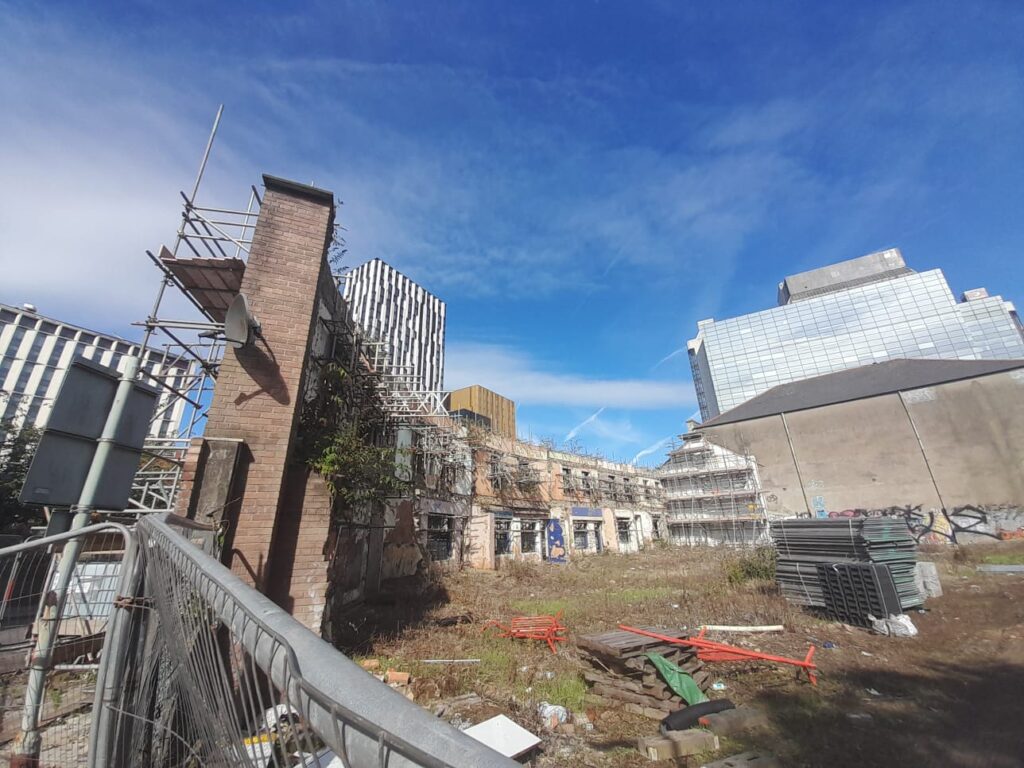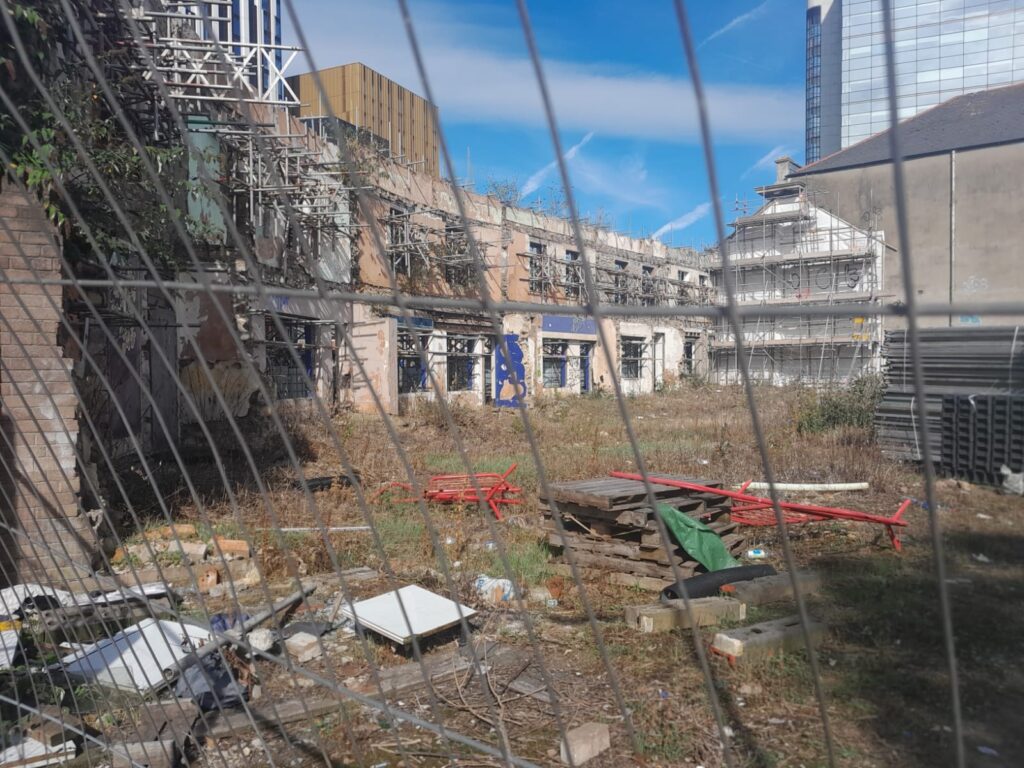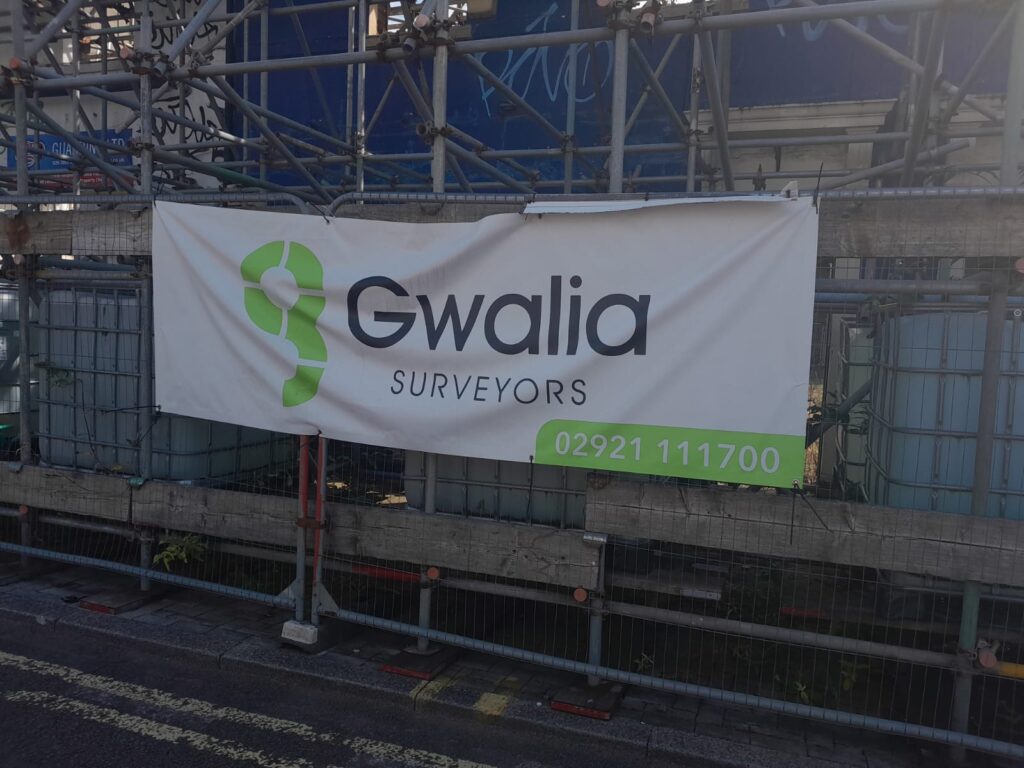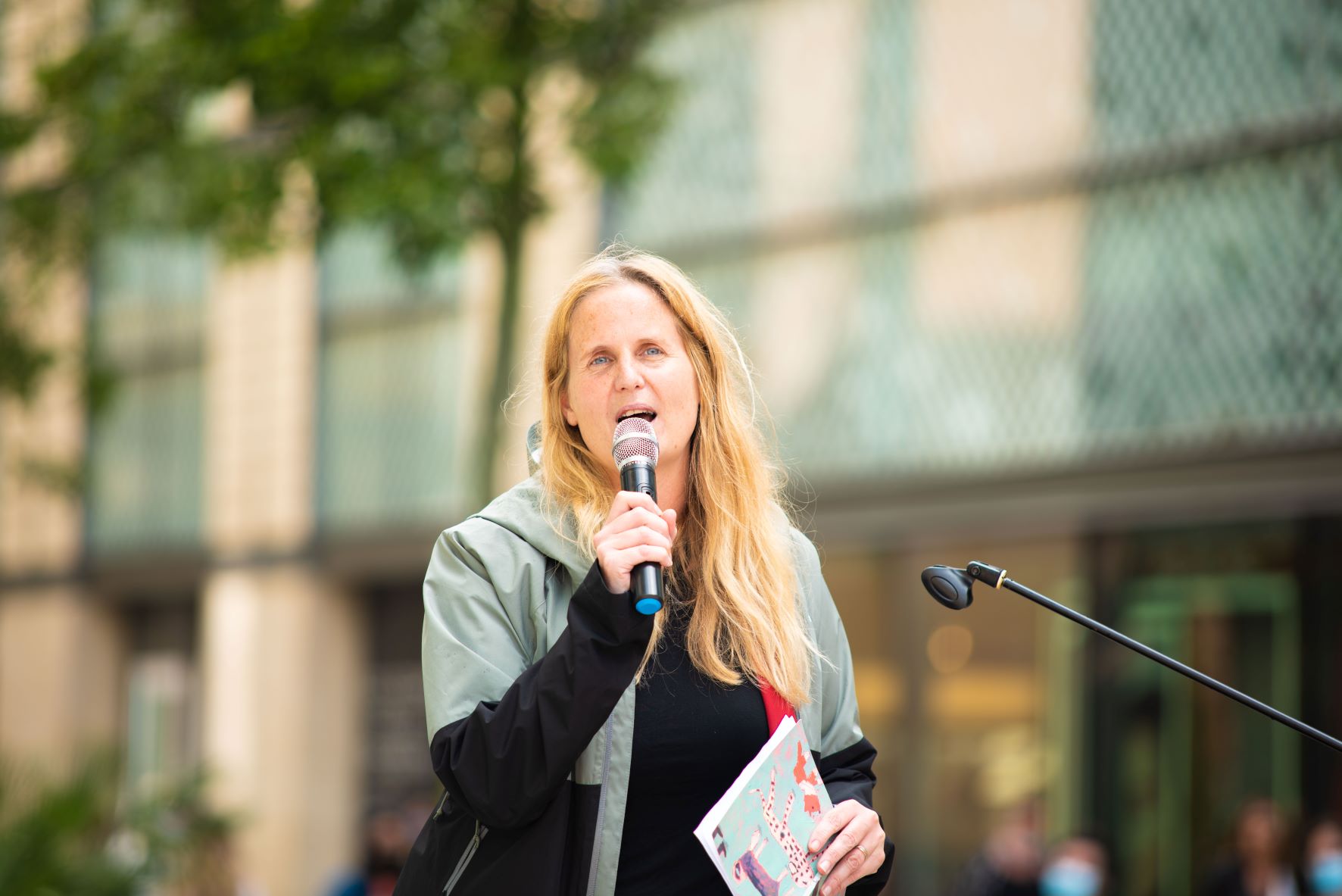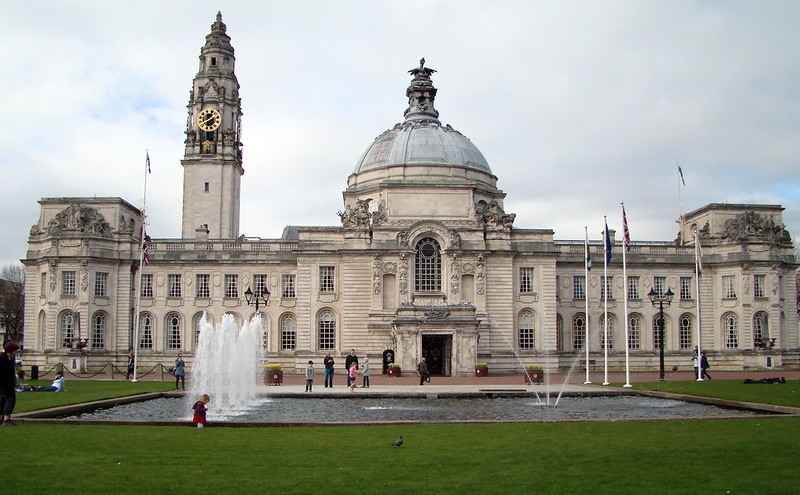
Four Years After The Gwdihŵ Demolition, Questions Remain Over Loss Of Cardiff Venue
“It’s really disheartening to witness the state of neglect that this once-vibrant and much-loved place has been left in.” – Daniel Minty, founder of Minty’s Gig Guide, on the destruction of Gwdihŵ in 2019.
By Ben Jones. Images by Ben Jones
Those new to the city may not be aware of what once stood at the currently vacant construction site on Guildford Crescent. What they will see today is a graveyard – an empty shell of buildings that were gutted years ago.
While now the site seems a miserable skeleton, just four years ago The Gwdihŵ – a vibrant music spot – was in the midst of a fierce battle for survival, bolstered by an immense local campaign to save it. Today, the loss of the venue remains pronounced within Cardiff’s music scene.
But what exactly has happened to the site in the last four years?
Past and future of Guildhall Crescent
The buildings on the crescent were marked for demolition in January 2019, triggering a huge effort to save them. Over 2,000 gathered outside the venue in central Cardiff at the time. A petition reached over 20,000 signatures, eventually drawing the attention of the Senedd.
Campaigners urged the landlords to renew leases and protect the city’s culture. At the time the council was exploring the possibility of establishing a conservation area at the site.
The ‘Guildford Peasants’, a group of squatters, also fought to save the historic site from demolition. The Peasants occupied the buildings for weeks and called for public support to demand conservation status for the area.
After demolition plans were delayed by three months because of the squatters, the buildings were eventually pulled down in September 2019. The facades of the buildings were kept in place, even though many saw it as a meaningless gesture.
Two much loved restaurants, which were institutions in their own right, were also demolished when plans were approved. These were Thai House, Wales’ oldest Thai restaurant, and the Madeira, a lively Portuguese eatery which had been operating since 1998. While Madeira relocated to a new venue on Mary Street, Gwdihw held its final night on January 30th, 2019.
In November 2021, plans were approved for a 30-storey apartment tower to be built on the site by Bristol-based developer Galliford Try.
The forthcoming tower, designed for 272 build-to-rent units, stands in stark contrast to the crescent’s former life as a cultural hub. A recent revision allowing a second staircase has also been granted approval as reported by WalesOnline in June.
However, progress on the tower block has been hindered due to financial and safety factors.
Almost two years later, no visible progress has been made and the site remains nothing but a few bits of rubble.
The latest development in this nearly five year-long saga has now seen plans approved to demolish even the facades of the original buildings, which had remained since the initial demolition.
These facades were saved initially after negotiations within Cardiff Council, but this was overruled on August 18th of this year.
The Rapport family
The Rapport family are the owners of Guildford Crescent – the land on which The Gwdihŵ used to reside – and are a prominent landowning family in Cardiff. Maurice A. Rapport started a clockmaking and watch company in the city in 1898, which became well-known in the industry.
The family’s success – following the founding of M.A Rapport & Co Ltd in 1922 – allowed them to acquire significant land holdings in Cardiff’s city centre. Maurice’s descendants, including his son Cecil and grandson Derek, took on prominent roles in the city, with Derek serving as the High Sheriff of South Glamorgan.
Oliver Rapport and Matthew Rapport, Derek’s sons, followed in the family business and are now leading a network of companies that own various properties in Cardiff, including the Vulcan Public House, which was demolished in 2012. The family’s properties, which have increased in value over the years, include car parks and student housing developments, such as the Ty Pont Haearn Building. The family owns various companies and holds significant land in the city.
“The destructive impact of relentless redevelopment.”
Daniel Minty, founder of Minty’s Gig Guide, was a pivotal figure in the campaign to save the venue and was in attendance at nearly every last one of its events.
Nearly four and a half years on, he reflects on the legacy of the Gwdihŵ: “I am still filled with an overwhelming sadness whenever I lay my eyes on Guildford Crescent whilst in Cardiff city centre,” he says.
“It’s really disheartening to witness the state of neglect that this once-vibrant and much-loved place has been left in, serving as a stark reminder of the destructive impact of relentless redevelopment on cherished independent culture and grassroots businesses that consequently, is turning the character and heritage of many well beloved places into nondescript, blank canvases.”
Cardiff Council did not reply to a request for comment. Council leader Huw Thomas, who originally backed the campaign to save the site, was also unable to provide comment on the progress of the site but did assist in providing information.
The Rapport Family, who own the site, did not respond to a request for comment.
Just months away from the fifth anniversary of the site’s demolition, nothing but a pile of bricks remains where Gwdihŵ once stood, and those who enjoyed the venue still mourn its loss.
voice.wales is a vital alternative to the mainstream media. We survive with the help of our monthly subscribers and don’t have big-money corporate backers. If you can afford £3 a month or more, join us now to secure the future of alternative and radical media in Wales. Click here to join or go to https://www.patreon.com/voicewales
If you want to support us directly, please email [email protected]
*An earlier version of this article incorrectly stated that Daniel Minty was pivotal in the running of the venue. This has now been changed to state that they were heavily involved in the campaign to save it, rather than the venue itself.

